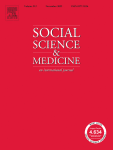Most residential children's social care services in England, including children's homes, are operated by for-profit companies, but the implications of this development are not well understood. This paper aims to address this gap by undertaking the first longitudinal and comprehensive evaluation of the associations between for-profit outsourcing and quality of service provision among English local authorities and children's homes.
To enable investigation of the implications of outsourcing children's residential social care services, we create and analyse a novel and longitudinal dataset covering more than 13,000 children's home inspections by Ofsted (the independent regulator of children's social care in England) over a period of 7 years (2014–2021). We also investigate the association between Ofsted local authority (LA) ratings and the reliance of LAs on for-profit and third sector outsourcing of children in care placements. Our analysis shows that for-profit providers are statistically significantly more likely to be rated of lower quality than both public and third sector services. For-profit children's homes also violate a greater number of requirements and receive more recommendations compared to other ownership types.
These findings are robust to model specification and consistent over the full analysed period. At LA level, we find provisional evidence that LA Ofsted ratings are negatively correlated with the percentage of for-profit outsourcing, suggesting that LAs which outsource a greater amount of their children in care placements perform less well than those which do not. These findings are of significant concern given the focus of these services on society's most vulnerable service users. However, caution is needed in terms of regulating the sector going forward, as the role of for-profit provision cannot be replaced without substantial coordination and long-term planning.

